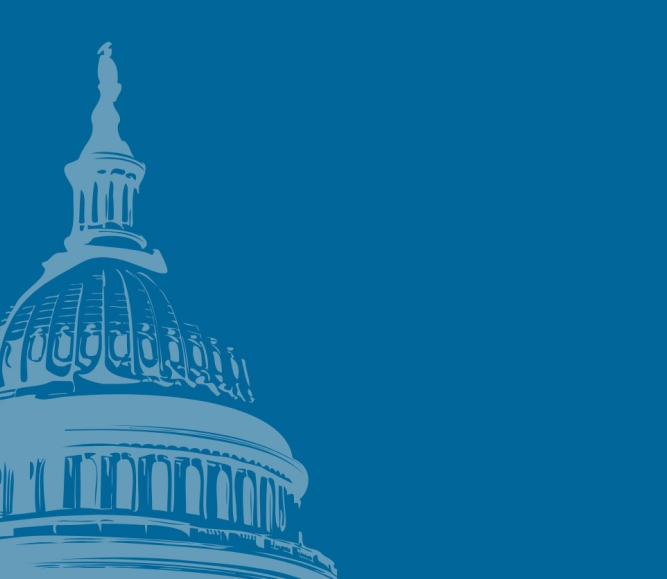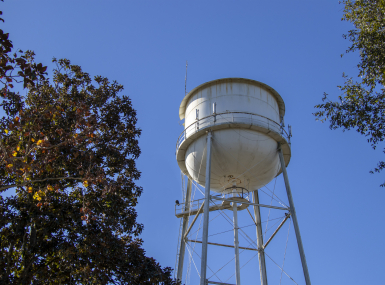UPDATED: U.S. Senate EPW Committee and House T&I Committee pass WRDA 2024, legislation awaits further action
Author

Charlotte Mitchell Duyshart
Upcoming Events
Related News

Key Takeaways
What is WRDA?
Water Resources Development Act (WRDA) legislation is the authorizing legislation for the U.S. Army Corps of Engineers (Corps). WRDA allows the Corps to conduct studies, construct projects and research activities to improve U.S. waterways. Since 2014, WRDA legislation has passed in a biennial cycle.
House
On June 26, the U.S. House Committee on Transportation and Infrastructure (T&I) passed the Water Resources and Development Act (WRDA) of 2024 (H.R. 8812) in a bipartisan 61-2 vote. WRDA 2024 now awaits consideration by the full House.
The House WRDA bill authorizes $9.8 billion for 160 feasibility studies and 12 new or modified construction projects.
The House WRDA 2024 bill contains many provisions that are beneficial to counties such as:
- Directing the Corps to track NEPA documents for water resource projects for water resource projects through their online permitting dashboard
- Creating a new initiative to assist non-federal project sponsors such as counties in accessing Corps resources
- Creating a pilot program allowing non-federal sponsors to carry out projects under the Continuing Authorities Program (CAP) through alternative delivery methods
Senate
On May 22, the U.S. Senate Committee on Environment and Public Works (EPW) passed the Water Resources and Development Act (WRDA) of 2024 (S. 4367) in a bipartisan 19-0 vote. WRDA 2024 now awaits consideration by the full Senate.
WRDA 2024 authorizes $3 billion for 81 feasibility studies and 8 new or modified construction projects. The WRDA 2024 legislation differs from previous WRDAs as the primary focus is to implement ongoing projects from previous WRDAs rather than creating new Army Corps policy.
WRDA 2024 contains many provisions that are beneficial to counties including:
- Directing the Corps to develop and execute a plan to fully implement projects in previous WRDAs
- Directing the Corps to educate non-federal sponsors such as counties, about operations, maintenance, repair, replacement and rehabilitation responsibilities
- Improving the Corps’ online permit finder resource to provide up to date information on the status of project permits
- Increasing federal cost share for inland waterway projects from 65 percent to 75 percent of the costs
- Increasing the maximum amount of funds the Corps may contribute under the existing Continuing Authorities Program (CAP)
What’s next for WRDA?
The House and Senate WRDA bills are eligible to be heard by their full respective chamber. However, the timeline remains unclear as there are a limited number of legislative days remaining during this election year. NACo will update this blog as more information becomes available.
Additional information
Resource
Support Authorization of the Water Resources Development Act (WRDA)

Related News

Congress increases oversight of Gulf Coast Restoration Trust Fund
On February 3, Congress passed new funding and authority for an audit and expanded oversight of the Gulf Coast Restoration Trust Fund, which houses federal funds for recovery from the Deepwater Horizon oil spill disaster. The provision was included in the Financial Services-General Government appropriations bill (FSGG), which was one of five included in a minibus package passed by Congress (P.L. 119-75).

U.S. Environmental Protection Agency announces repeal of 2009 Endangerment Finding for greenhouse gases
On February 12, the U.S. Environmental Protection Agency (EPA) announced it was repealing the 2009 Endangerment Finding, which is basis for EPA regulation of greenhouse gas (GHG) emissions under the Clean Air Act.

NACo sends letter urging reauthorization of Clean Water and Drinking Water State Revolving Funds
The Environmental Protection Agency (EPA) established the Clean Water and the Drinking Water State Revolving Funds (SRFs) programs to provide a predictable, long-term financing option for local drinking water and wastewater infrastructure projects.